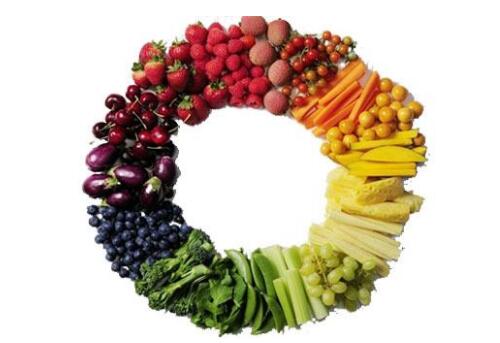Vitamin B12 plays a very special role in neurological problems. The body needs this nutrient to make myelin. Myelin is a layer of fat sheath wrapped around the nerve fibers, which separates the nerve fibers from the outside and performs the function of transmitting nerve impulses normally. Lack of vitamin B12 increases blood levels of homocysteine and causes a variety of neurological dysfunctions, including memory loss, unresponsiveness, decreased tactile or pain sensation, and, of course, hearing loss due to tinnitus and noise.
Most people can get enough vitamin B12 from their daily diet, but malabsorption will still cause some people to be deficient, which is especially common among the elderly. Strict vegans do not eat meat, eggs and dairy products, and vitamin B12 is only found in animal foods, so they often suffer from deficiency.

Daily demand for vitamin B12: 6 microgram
The best food sources: oysters, ham, cooked oysters, clams, squid, squid, tuna.
Antioxidant – protects the ear from damage
Tinnitus is sometimes caused by a decrease in the ability of the ear to supply blood. Whether the arterial blood vessels entering the inner ear are blocked by cholesterol, or the huge noise causes the arterial blood vessels to smash and reduce the blood supply to the inner ear. Sudden interruption of blood supply can cause hearing problems. This is where antioxidant nutrients include vitamin C, vitamin E, beta-carotene and other nutrients. Antioxidants contribute to arterial vasodilation and prevent the formation of plaques of blood vessels.
Magnesium – protects delicate ears
Animal experiments have shown that experimental animals lacking magnesium in the body are affected by noise and the damage to nerve cells in the cochlea is more serious than that of animals fed with magnesium-rich food. Low levels of magnesium, combined with noise pollution, can deplete the energy stored in the cells, leading to depletion, damage and eventual death of the inner ear cells.
Experts believe that even young people who are healthy and have normal hearing can add some magnesium to their ears. If you are in a noisy environment, you should ensure that the daily intake of magnesium meets the daily requirement of 400 mg. Most people do not meet this requirement. The average daily intake of men is about 329 mg, while the average daily intake of women is 207 mg. Greens, whole grains, nuts and beans are all foods rich in magnesium.
If there is congestion and balance in the ear with tinnitus, experts recommend that calcium and potassium intake be sufficient. These accompanying symptoms may indicate that you also have Meniere’s disease.
Daily demand for magnesium: 400 mg
The best food sources: brown rice, avocado, spinach, squid, oatmeal, baked potatoes, kidney beans, lima beans, broccoli, yogurt, bananas.
Zinc – maintaining normal function of the cochlea
Some parts of the body have higher concentrations of certain vitamins or minerals than other parts of the body, as is the inner ear. The concentration of zinc in the inner ear is very high, and this finding has led some doctors to speculate that the lack of zinc may be one of the causes of inner ear disease including tinnitus. Experts point out that zinc is indispensable to maintain the normal function of the cochlea. Animals fed on foods with lower zinc content have a much lower hearing loss. Moreover, it is very clear that in the elderly, a slight lack of zinc is common, which can also aggravate the tendency of hearing loss caused by noise or aging.
Dr. Shanbofu of Northwestern University in Chicago estimates that 25% of the patients with severe tinnitus he treated were caused by zinc deficiency. Some people also suffer from loss of appetite, hair loss, decreased taste and olfactory sensitivity, and skin diseases, all of which are associated with a lack of zinc. He recommends that these patients be supplemented with zinc while taking a powerful multivitamin/mineral supplement to increase the intake of other nutrients.
Note: Zinc also interferes with the body’s absorption of copper. If you consume a lot of zinc, you need to take some copper supplements.
Daily demand for zinc: 15 mg
The best food sources: cooked oysters, beef, lamb, eggs, whole grains, nuts, yogurt.
Vitamin A – helps improve hearing
Like zinc, vitamin A is also highly concentrated in the cochlea. Dr. Shanbofu said that all special receptor cells, including the retina in the eye and the hair cells in the inner ear, need vitamin A and zinc to maintain their normal function. Studies have found that low levels of vitamin A in the blood cause hearing loss. In some studies, 24% to 74% of tinnitus patients have at least partially relieved tinnitus symptoms after taking vitamin A supplements. Experts recommend that patients take beta-carotene, which is converted to vitamin A in the human body. 30 mg is taken twice a day to equal 50000 international unit beta-carotene.
Daily demand for vitamin A: 5000 International Unit
The best food sources: carrot juice, pumpkin, sweet potato, carrot, spinach, ash walnut juice, tuna, dandelion leaves, cantaloupe, mango, turnip, beet.
Jinghao medical hearing aid reminder:Hearing aids need to be professionally “fitted”. It is very important to choose a professional hearing aid fitting center and hearing aid fittings! You can call the Jinghao medical for any hearing problems, or you can come to the center to experience the experience. . Hearing aid free consultation phone: +86-18566295705
You can also scan our WeChat public account for more information about hearing.

Link:Supplement 5 nutrition to say goodbye to tinnitus
REF: Hearing Aids, Hearing Aids Supplier , BTE Hearing AidsThe article comes from the Internet. If there is any infringement, please contact [email protected] to delete it.

